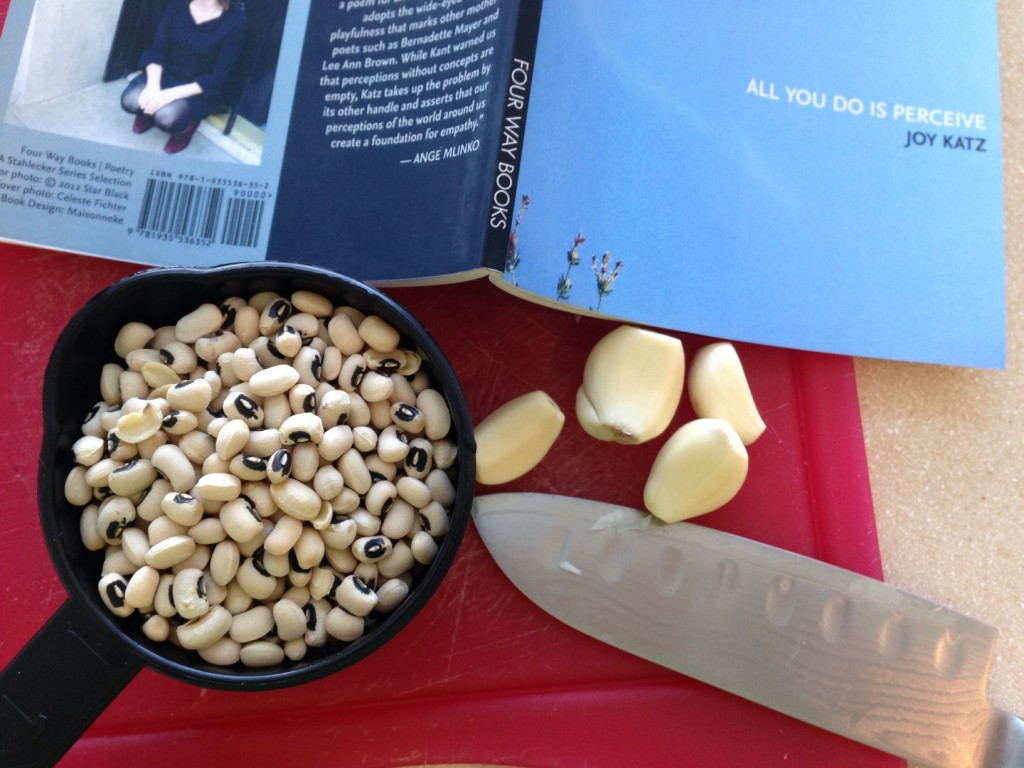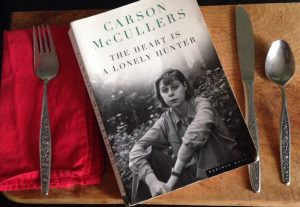
Joy Katz, All You Do is Perceive
(With a bonus New Year’s Day Black-Eyed Pea recipe)
By Sherrie Flick
For the past three years I’ve celebrated New Year’s Eve in Key Largo with the writer Chuck Kinder, his wife Diane Cecily, and my husband Rick Schweikert. Chuck and Diane’s rental has a beautiful deck on which one can drink coffee, wine, and cocktails while watching dolphins frolic and manatees loll in the Gulf of Mexico. The view is like the idea of love manifested. The view reminds me of the wonderful last line of the title poem of Joy Katz’s new book: “I was given nothing but the air, and the air dazzled.”
I ring in the New Year with friends and a sunset, eat fish, sip cocktails, with a final clink of champagne glasses around the table. “Let’s toast to another year!” we say. “I’m still alive!” Chuck says. And we laugh and toast again.

New Years Day I make spicy black-eyed peas. I’m actually doing this right now as I write this post. They’re bubbling on the stove. Simmering away—offering up potential, celebrating hope.
While I wait on the peas, I’m also reading the poetry collection All You Do is Perceive by Joy Katz. I’m perched on a bar stool at the kitchen counter, palm trees sway outside the big picture window. Continue reading →
![[PANK]](https://pankmagazine.com/wp-content/themes/pank/assets/images/pank-logo-large.png)





